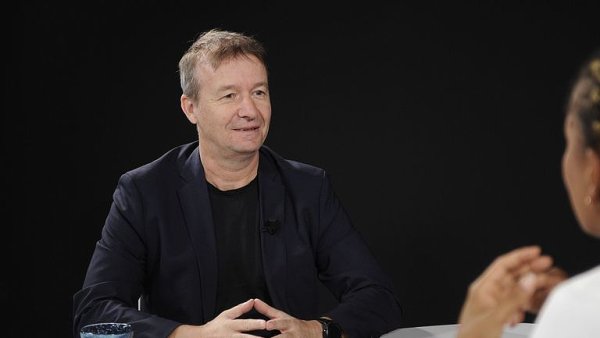Democracy surrounded by dictators
Czechoslovakia, founded on October 28, 1918, was the first independent state ever to be able to protect the basis civil rights of all of its citizens, both Czechs and Slovaks. Proof of its democratic character may be found in the fact that it became, like Switzerland, an asylum for thousands of refugees from communist Russia and later from Germany and Austria.
The birth of a new state
Czechoslovakia was founded from the ruins of the defeated Hapsburg monarchy, which itself was created because of continued conflict with the Turks and lack of security thereafter. Another war, this time World War I, destroyed the Hapsburg empire.
T.G. Masaryk, the father of independent Czechoslovakia, supported the monarchy for a long time. But by 1914, frightened by the rise of German nationalism, he realized that reform of the Austrian-Hungarian empire was not possible.
The final decision to create a new republic came in 1918. In the USA, France and Great Britain, most politicians thought that a chain of small states would provide a more effective barrier against German and Bolshevik expansion than the defeated and corrupted monarchy.
A troubled regional power
Czechoslovakia immediately became a regional power. There were a lot of inherited problems, though, including post-war poverty, disease and troubles caused by the disintegration of the fallen empire`s economy. Most of the troubles arose from the diverse ethnic make-up of the new state. At the very beginning, Germans living along the border attempted to break away from the new republic and unite with either Austria or Germany. The new government was forced to send an army to Slovakia to battle against the Hungarians (and some Slovaks too) who were trying to unite "Upper Hungary" with the newly- formed Hungarian state. And there were Ruthenians and Poles, too.
Neighbors and allies
It was very important fo the new country to find allies able to guarantee its national security, as it was surrounded only by enemies and rivals. The exception, the only ally among its neighbors, was Romania. Defense of the Versailles post-war order became the cornerstone of Czechoslovak foreign policy.
France, our principal ally, was to become the hegemonic leader of the old continent. It was poor, however, and its foreign policy was under British influence. Great Britain looked on the countries of Central Europe with contempt.
Foreign minister and later President Edvard Beneš continually promoted the idea of collective security. He believed in the necessity of aligning with the democratic West and tried to engage the Soviet Union firmly in European politics. In 1935, a mutual aid pact with Soviet Russia was signed, but it was never put into practice.
Munich and disaster
All discussions about the first republic inevitably end with mention of its destruction by the treaty signed in Munich in 1938. By the end of 1937, the British let Berlin know that they were not againt Germany establishing its own sphere of influence in eastern and southeastern Europe.
In September, 1938, the pressure applied by the British and French on the Czechoslovak government reached its climax. The republic stood alone. The Sudeten Germans revolted, Slovakia began to show nationalistic tendencies, Poland was menaced with war. Hitler had already annexed Austria, and the country was surrounded by German armies on three sides.
Even today, some people believe that if Czechoslovakia had gone to war with Germany, public opinion would have forced the western powers to come to our aid. But the commanding generals of the Czechoslovak army warned Beneš that under no circumtances could the army defend the country, and in case of war it would be forced to withdraw to the mountains of Slovakia, perhaps even to Romania. Beneš did not have the courage to fight alone, believing sooner or later that the civilized world would start a war against Hitler. Although he later regretted the decision, he was proven right by the subsequent fall of Poland, which was then divided between Germany and Russia.
Josef Pravec
(HN na víkend)
 Přidejte si Hospodářské noviny
mezi své oblíbené tituly
na Google zprávách.
Přidejte si Hospodářské noviny
mezi své oblíbené tituly
na Google zprávách.
Tento článek máteje zdarma. Když si předplatíte HN, budete moci číst všechny naše články nejen na vašem aktuálním připojení. Vaše předplatné brzy skončí. Předplaťte si HN a můžete i nadále číst všechny naše články. Nyní první 2 měsíce jen za 40 Kč.
- Veškerý obsah HN.cz
- Možnost kdykoliv zrušit
- Odemykejte obsah pro přátele
- Ukládejte si články na později
- Všechny články v audioverzi + playlist




